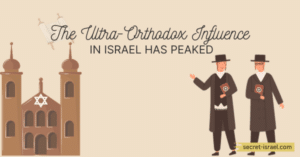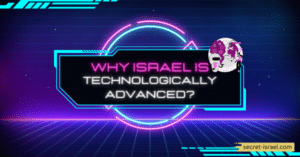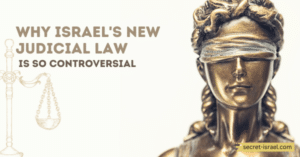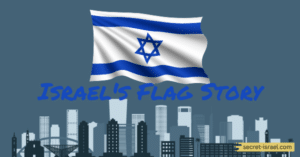The Palestinian fight for independence is a long struggle, facing political, economic, and social challenges, and drawing global attention. Understanding its complexities is crucial in finding a just and lasting peace for all.
In this blog, we will explore the roots of the conflict, discuss the various Palestinian resistance movements that have emerged as a result of it, discuss the role of the United Nations and other global actors, examine the current situation in the West Bank and Gaza Strip, and consider possible resolutions to this complex issue. Join us as we dive into one of the most contentious conflicts in modern history.
Understanding the Roots of the Conflict
The roots of the Israeli-Palestinian conflict reach back to the late 19th century and early 20th century when Zionist Jews began immigrating to Palestine in large numbers. This influx of Jewish immigrants sparked an increase in tensions between them and their Arab neighbors, leading to numerous clashes throughout the region. During this period, the British controlled Palestine and sought to maintain peace between the two sides.

In 1947, the United Nations voted to partition Palestine into an independent Jewish state – Israel – and a separate Arab Palestinian state, leading to increased tensions and violence in the region. The following year, Israel declared its independence and was soon invaded by surrounding Arab nations. This conflict, known as the 1948 Arab-Israeli War, resulted in Israel’s victory and the displacement of hundreds of thousands of Palestinians from their homes.
The 1967 Six-Day War saw another major shift in the region, as Israel captured East Jerusalem and the West Bank from Jordan, as well as the Golan Heights from Syria. This heightened Israeli control over the Palestinian territories and increased tensions between Israel and its Arab neighbors.
Palestinian Resistance Movements
Palestinian resistance movements have played a significant role in the fight for Palestinian independence. These movements are often characterized by their use of forceful tactics in response to perceived injustices and oppression. They aim to protect and advance the interests of the Palestinian people by challenging the Israeli occupation and pushing for Palestinian self-determination.
Hamas
Established in 1987, Hamas is a militant Islamist organization that has engaged in numerous armed conflicts with Israeli forces. Hamas is committed to the destruction of Israel and the establishment of a Palestinian state in the territory that Israel occupies. They view violent resistance as a legitimate means to achieve their goals.
Fatah
The Palestinian Islamic Jihad, and the Popular Front for the Liberation of Palestine. These groups have also engaged in armed resistance against Israeli forces and are dedicated to securing Palestinian independence.

It is worth noting that not all Palestinians support these groups’ use of violence as a means of resistance, and there is a broad spectrum of political and ideological views within the Palestinian population.
However, for many Palestinians, these resistance movements represent a means of fighting against perceived oppression and injustice, and their actions have galvanized support and solidarity among Palestinians and others around the world.
The Role of the United Nations and Other Global Actors
The Israeli-Palestinian conflict has involved the UN and other international players such as the EU, individual nations, and human rights organizations.

UN Security Council
Has passed numerous resolutions calling for an end to the Israeli occupation of Palestinian territories and the establishment of a Palestinian state. However, these resolutions have not been implemented, largely due to opposition from Israel and the United States.
European Union (EU)
The EU has provided financial and humanitarian aid to Palestinians and has been a vocal supporter of the two-state solution. Additionally, individual countries, such as Russia and China, have also taken an active role in the conflict, often aligning themselves with the Palestinian cause.
Non-governmental organizations (NGOs)
Also played a critical role in advocating for Palestinian independence and documenting human rights abuses committed by Israeli forces. These groups include Amnesty International, Human Rights Watch, and the Palestinian Center for Human Rights, among others.
Despite the efforts of these global actors, the Israeli-Palestinian conflict remains unresolved, and the fight for Palestinian independence continues. However, the involvement of the UN, the EU, NGOs, and other actors have brought international attention to the issue and helped to galvanize support for the Palestinian cause.
The West Bank and Gaza Strip
Are two separate regions of land in the Israeli-Palestinian conflict. The West Bank is a piece of territory located on the western bank of the Jordan River, while the Gaza Strip is an area along the Mediterranean Sea that borders Egypt and Israel.
Both areas are under Israeli control, but they have been divided since 2007 when Hamas seized control of the Gaza Strip. Israel has taken numerous steps to limit Palestinian movement in both regions and restrict access to resources such as water, food, and medical care.
The situation in the West Bank and Gaza Strip is a major source of tension between Palestinians and Israelis, as well as a key point of contention in negotiations for a two-state solution.

Examining Possible Resolutions to the Conflict
Ultimately, a peaceful resolution to the Israeli-Palestinian conflict will require compromise and cooperation from both sides. Negotiations have been ongoing for decades, but progress has been slow.

The two-state solution
Would create an independent Palestinian state alongside Israel. This solution has broad international backing, but it requires both sides to make significant concessions.
Single Bi-national state
Which Palestinians and Israelis would have equal rights and access to resources.
Both solutions present challenges for the two sides, but they may provide the best path forward for resolving the conflict. Ultimately, it will be up to both Israelis and Palestinians to come together to find lasting peace.
In conclusion
The Israeli-Palestinian conflict is a complex and longstanding issue. That has resulted in immense suffering for both Israelis and Palestinians. To resolve the conflict, both sides will need to make significant compromises and come together in good faith to seek lasting peace.
Fortunately, there are several viable solutions being discussed, such as the two-state solution or a single bi-national state. This will require immense courage and determination from both sides. But if it is achieved, it would bring about the long-awaited peace in the region.












